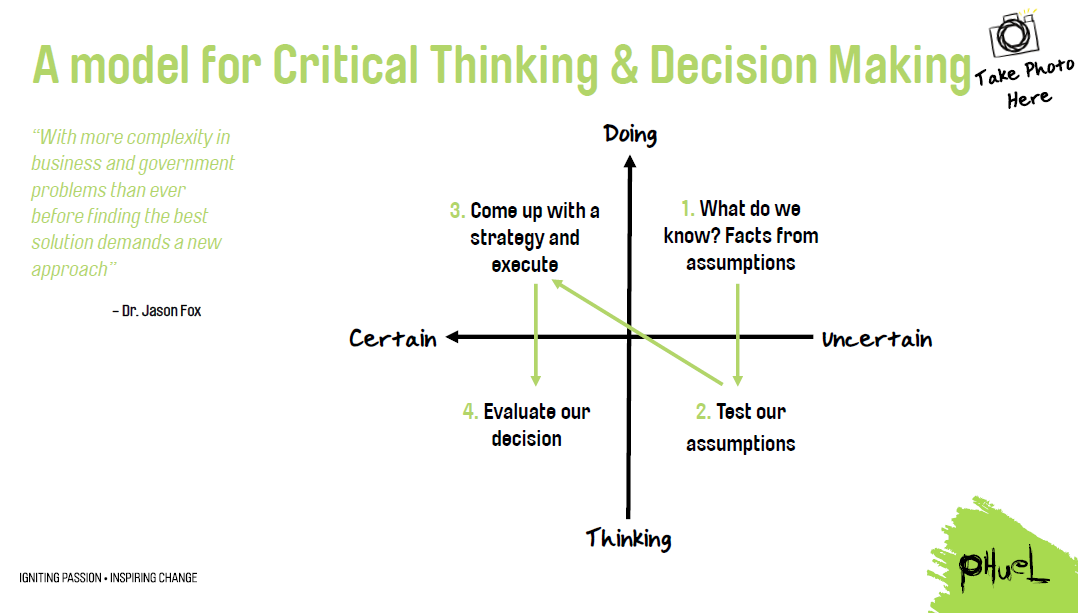Power-up your creative problem-solving
Conscious that we can’t fall into the trap of when-things-return-to-normal thinking, critical thinking was the focus of our most recent IABC NSW event, “Power-up your creative problem-solving”.
About 30 communicators attended the virtual workshop facilitated by Jo Pollard and Meaghan Archunde from Phuel,aimed at helping communicators enhance their skills and be ready for changes ahead.
The Phuel team explained that critical thinking was the analysis and evaluation of ideas and information in order to reach sound judgements and conclusions. “It’s central to any discussion, to decision-making and to problem solving.”
Critical thinking takes into account both logic and how people feel. “With logical thought, we analyse what is there. With creative thought, we contemplate what isn’t there. Critical thinkers use both types, depending on the demands of the situation.”
The Phuel team presented Dr Jason Fox’s model for Critical Thinking & Decision Making as a quick guide to problem-solving:
What do we know? Facts vs assumptions
Test assumptions (see the Three Steps to Critical Thinking)
Come up with a strategy and execute
Evaluate the decision
Jo and Meaghan also looked at roadblocks that prevented critical thinking, including discomfort with asking questions, being close-minded, fear or just rushing head-first to a solution. Other obstacles attendees highlighted included organisational and cultural norms, conflicting ideas, unrealistic timeframes, someone with an idea they want to run with or “we’ve tried this before”.
They offered tips for practising critical thinking that included slowing your thinking, asking questions, reflecting on what’s informing your thinking, and not simply skipping straight to the solution.
Three Steps to Critical Thinking
Becoming aware that assumptions exist.
Make the assumptions explicit.
Assess the accuracy and validity of assumptions by asking:
Do these assumptions make sense?
Do they fit reality as we now understand and live it?
Under what conditions do they seem to hold true?
Under what conditions do they seem false?
Our sincere thanks to the Phuel team for another sensational sold out event, Jo Pollard, Meaghan Archunde, Belinda Sheldrick and Alexandra Blackbourne nominated their speaker gifts to safe steps Family Violence Response Centre and Mission Australia – supporting older Australians facing homelessness.


